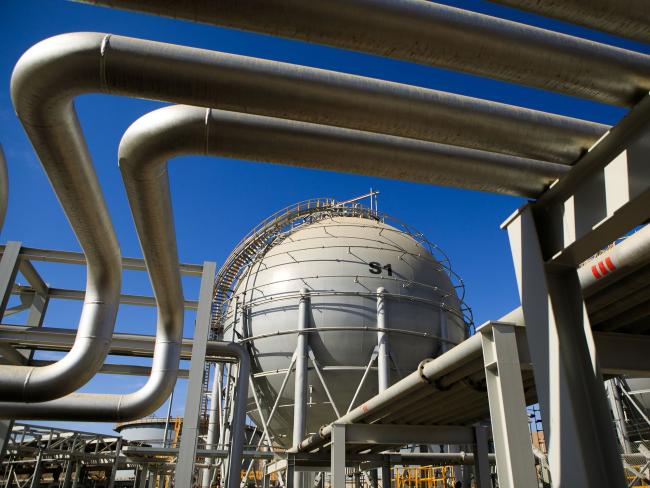(Bloomberg) -- Liquefied Natural Gas Ltd., an Australian-based developer of terminals to export its namesake fuel, plans to re-domicile in the U.S. and list its shares in New York as the company concentrates on projects in North America.
Its board has approved a plan to swap shares currently traded in Sydney for ones that will be listed on the Nasdaq Stock Market, LNG Ltd. said in an emailed statement.
The moves, which are expected to be completed by the year-end or in early 2020, have been in the works for about two years, Chief Executive Officer Greg Vesey said in an interview. In that time, the company has shifted its focus from Australia and Indonesia to the U.S. and Canada. It’s developing the Magnolia project in Louisiana, which would have the capacity to export 8 million metric tons a year, as well as the Bear Head project in Nova Scotia, which would be of a similar size.
The U.S. is quickly emerging as an LNG export superpower, with three new export terminals starting up since December. North American investors hold 48% of LNG Ltd.’s shares while those in Australia and Asia own a little more than one fifth, according to the company.
“In the Australian market, we feel that we are very undervalued,” and being listed there has made it hard for investors to compare it to other U.S. LNG terminal developers, Vesey.
The move to the U.S. still requires Australian judicial and regulatory approvals as well as shareholder approval. LNG Ltd. has already moved employees out of its Perth corporate office to Sydney in preparation, Vesey said.
Still, global LNG prices have recently slumped amid a global glut. Vesey said that LNG’s original vision was to re-domicile once it had given the green light to build Magnolia, but the “market dramatically slowed down,” Vesey said. LNG Ltd.’s stock has declined 54% this year to give it a market capitalization of A$135 million ($95 million).
The company’s marketing team continues to speak with potential buyers about long-term offtake agreements for LNG from Magnolia. The plunge in prices and the trade war between the U.S. and China has made signing deals this year harder, Vesey said.
“There was a lot of optimism early this year,” he said. “We thought the China issues would be settled; in fact they have gone the other way. I do think it’s slowed down.”
